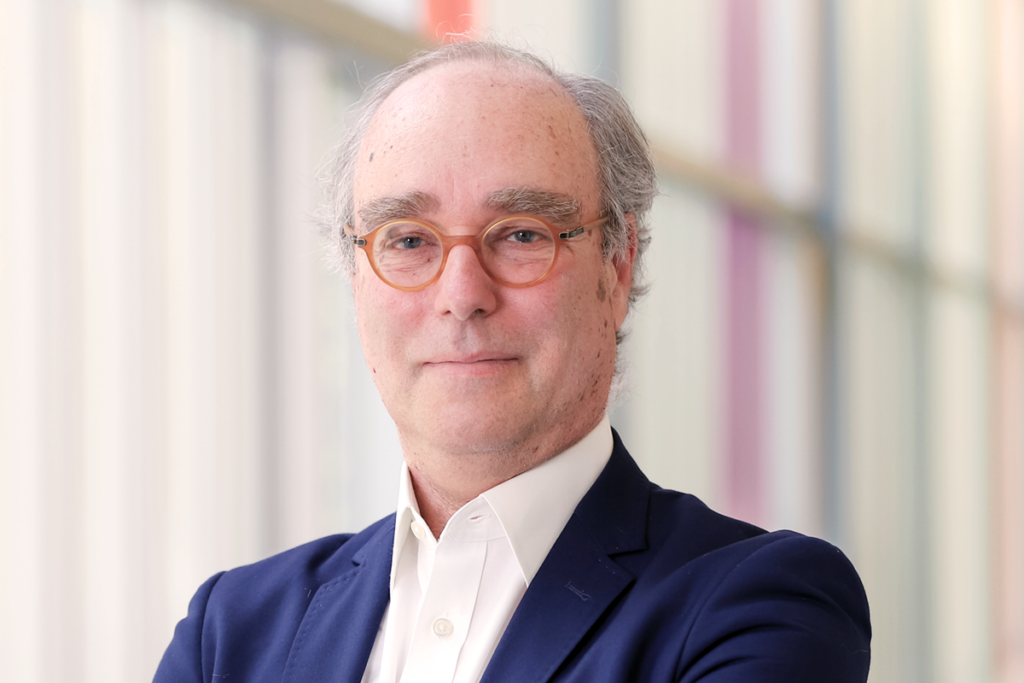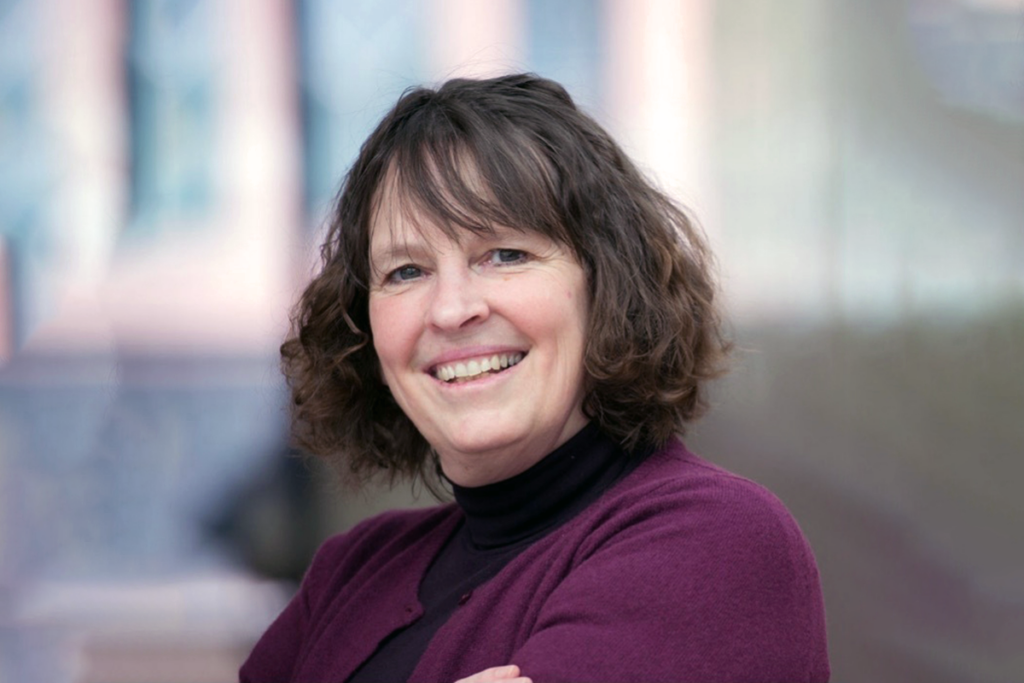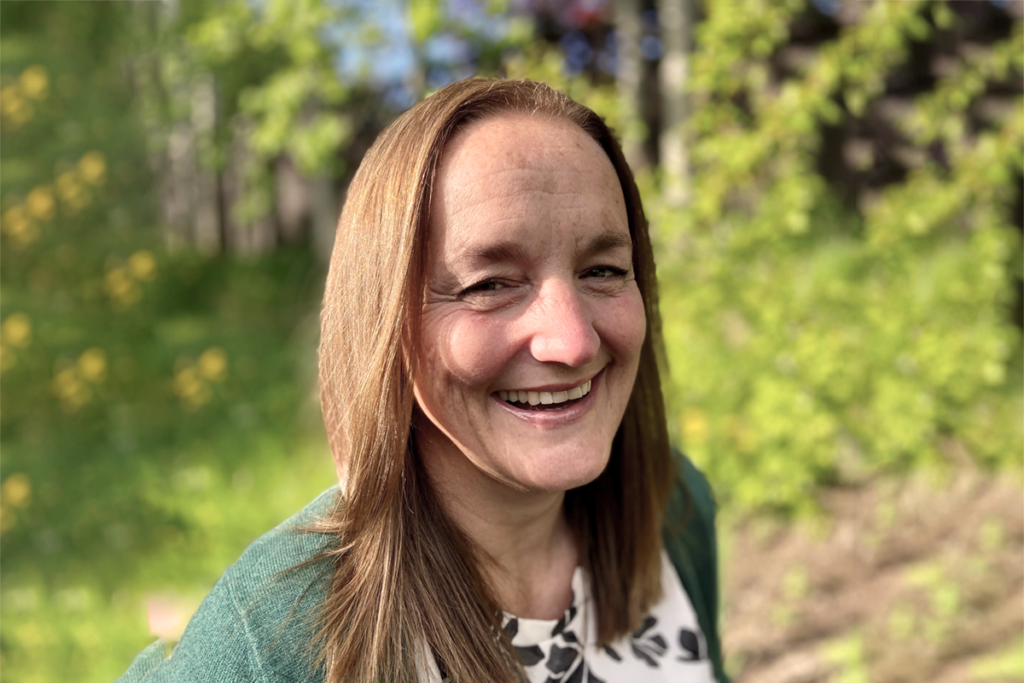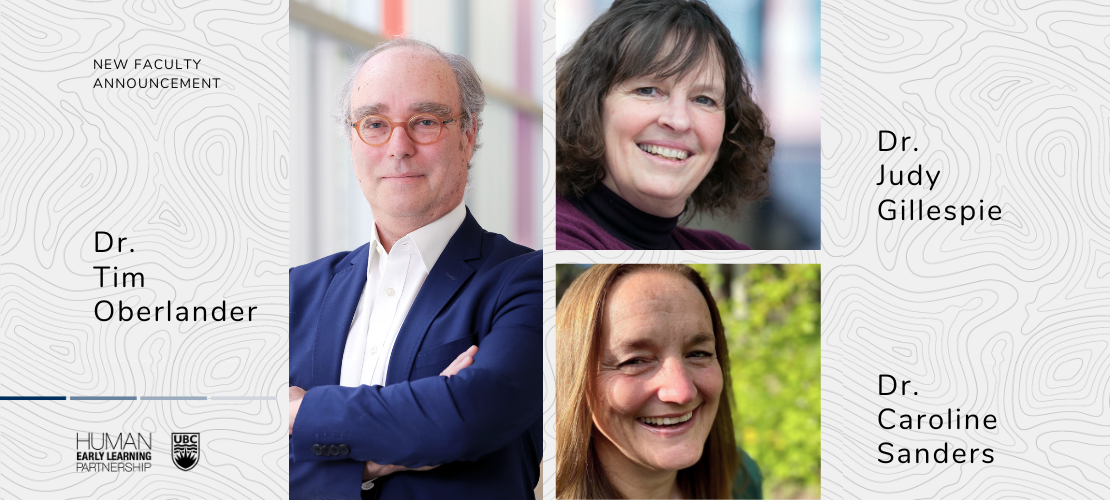The Human Early Learning Partnership (HELP) is delighted to mark the arrival of 2024 with the addition of three distinguished faculty and affiliate faculty members to its esteemed team of researchers. These accomplished individuals bring a wealth of knowledge and experience that will undoubtedly enrich HELP’s ongoing efforts to better understand and improve early childhood development.

Dr. Tim Oberlander
HELP welcomes back Dr. Tim Oberlander as a faculty member. A developmental pediatrician by training, Oberlander is also the R. Howard Webster Professor in Brain Imaging and Child Development, and professor in UBC’s Department of Pediatrics and the School of Population and Public Health. As a clinician, he is the medical lead for the Complex Pain Service at BC Children’s Hospital and has a particular interest in managing pain in children with developmental disabilities.
“I am super thrilled to rejoin HELP as a faculty member and welcome the opportunity to renew my connections with the HELP community,” says Oberlander. “My hope is to build on a vision that Dr. Clyde Hertzman and I shared during the early years of HELP, bridging BC Children’s Hospital and Sunny Hill communities to advance child developmental health, and train a new generation of interdisciplinarians across health and social sciences.”
Using both cohort and population level data, Oberlander’s research is driven by a curiosity to answer questions about how early life experiences related to maternal mental health affects a child’s capacity to regulate stress and contributes to the early origins of social, emotional, and academic well-being and physical health across the early lifespan. In early 2020, he pivoted his research away from lab-based data collection to engage families and children in real world research, where they live their daily lives.
“We look forward to welcoming back Dr. Oberlander as a faculty member to HELP,” says Dr. Mariana Brussoni, Director of HELP. “As an early HELPer, his expertise in studying the impact of early social experience in childhood development formed part of HELP’s foundation. His latest work partnering with patients and families to explore novel data collection methods to answer the questions that matter to them enhances HELP’s efforts to understand the complexities of early childhood.”

Dr. Judy Gillespie
Joining HELP as an affiliate faculty member, Dr. Judy Gillespie brings a wealth of expertise in understanding the role of communities and their social, physical, and political infrastructures in promoting child welfare. With a background in social work and a PhD in Urban Planning, Gillespie’s research delves into the intricate interactions between person and place, emphasizing the impact of professional practice shaped by the unique characteristics of different locales.
“HELP has really advanced the appreciation of the ways that child rearing is a collective activity, including specific ways in which children’s well-being is reliant on the strength of the whole community,” says Gillespie. “These ideas are near and dear to me and I am very excited to be a part of advancing this understanding and participating in its translation to specific policies and programs.”
Gillespie has extensive experience in community organizing, specifically in rural and Indigenous communities. Her current research focuses on the critical role of Indigenous ways of knowing in evaluating the impacts of Indigenous-led multisector community change initiatives.
“We’re excited to welcome Dr. Judy Gillespie as an affiliate faculty member at HELP — her research with Indigenous communities to support change initiatives aligns seamlessly with our centre’s mission,” says Brussoni. “Dr. Gillespie will be a great addition in advancing our community partnerships and exploring the role of community infrastructures in improving the lives of families and children.”

Dr. Caroline Sanders
Adding another layer of interdisciplinary expertise, Dr. Caroline Sanders joins HELP as an affiliate faculty member with a focus on child health, rare conditions, and action-and-participant-orientated engagement. Sanders employs qualitative and mixed-method approaches, such as phenomenology, narrative inquiry, and participatory action research, to explore early childhood development.
“Becoming a HELP affiliate faculty member feels like extending my family,” says Sanders. “As a nurse and researcher working within education and clinical practice, I work with families and cross-sector partners to build relationships. Our early year’s northern network SEEDBC.ca is an important part of the sharing-learning-change cycle, and we are excited to work with the HELP team.”
Working collaboratively with interdisciplinary providers, community partners, decision-makers, children, youth, and their families, Sanders’ research program is framed within compassionate systems leadership, aiming to understand how the implementation and impact of relevant knowledge can be used to evaluate healthcare approaches and interventions in academic and applied clinical contexts.
“We welcome Dr. Caroline Sanders as an affiliate faculty member at HELP with great enthusiasm,” says Dr. Brussoni. “Her interdisciplinary approach to child health research, along with community partnerships to improve child health and outcomes in rural and remote northern communities, supports HELP’s mission and reflects our commitment across the province. We look forward to the innovative insights and novel perspectives that Dr. Sanders will bring.”
The addition of Dr. Tim Oberlander, Dr. Judy Gillespie, and Dr. Caroline Sanders to HELP marks an exciting beginning to 2024. Each faculty member brings a unique skill set and perspective, further strengthening HELP’s commitment to understanding and enhancing early childhood development. We eagerly anticipate the innovative research and collaborative efforts that will unfold as a result of their dedication and expertise.
